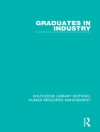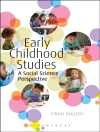Combining visual and literary analyses and original ethnographic studies as part of a more general political reflection, Migration in the Making of Gulf Space examines the role of migrants and non-citizens in the processes of settling in the Arab States of the Gulf region. The contributions underscore the aspirational character of the Gulf as a place where migrant recognition can be attained while also reflecting on practices of exclusion. The book is the result of an interdisciplinary dialogue among scholars and includes an original contribution by the acclaimed author of the novel Temporary People, Deepak Unnikrishnan.
Cuprins
List of Figures
Acknowledgements
Introduction
Antía Mato Bouzas
Part I: Cosmopolitanism, Belonging and National Imaginaries
Chapter 1. Exhibiting Tolerance: Citizenship, Contingency and Contemporary Art in the UAE Pavilion, 2009 – 2017
Elizabeth Derderian
Chapter 2. The Gulf as an Unhomely Home. Reconfiguring Citizenship and Belonging in Diasporic Narratives on Second-Generation Migrants
Nadeen Dakkak
Chapter 3. Navigating the Cosmopolitan City: Emirati Women and Ambivalent Forms of Belonging in Dubai
Rana Al Mutawa
This chapter is available open access thanks to the support of NYU Abu Dhabi.
Part II: Aspirational Gulf
Chapter 4. Dubai as Heterotopia? The Aspirational Politics of Everyday Cosmopolitanism in Gulf Space
Jaafar Alloul
Chapter 5. A Strangeness One Can Occupy: Clothes and their Codes in the Photographs of Gulf Migrants from Kerala
M. Shafeeq Karinkurayil
Conclusion: The Gulf Space in Words: In Dialogue with Author Deepak Unnikrishnan
Lorenzo Casini and Deepak Unnikrishnan
Index
Despre autor
Lorenzo Casini is Associate Professor of Arabic Language and Literature at the University of Messina. He has been Jean Monnet Fellow of the European University Institute (2006–2007) and has taught at several Italian universities. He is co-author of Modernità arabe: Nazione, narrazione e nuovi soggetti nel romanzo egiziano [Arab Modernity: Nation, Narration and New Subjects in the Egyptian Novel] (Mesogea, 2012).












